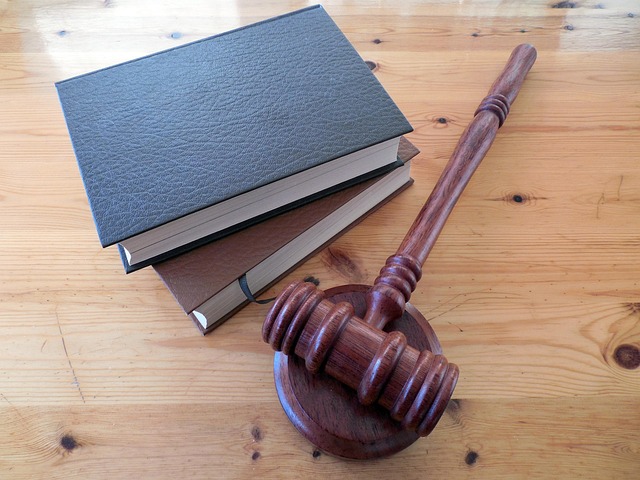Whistleblower protection lawsuits are critical tools for holding organizations accountable and compensating individuals who expose illegal or unethical activities, offering various forms of compensation for personal injury such as damages, back pay, and punitive awards. These cases require navigating complex legal regulations with overarching laws holding employers responsible for retaliating against whistleblowers. Specializing attorneys help protect whistleblowers' rights, providing support through strategies like seeking compensatory and punitive damages, injunctive relief, job reinstatement, and financial rewards, while defending against employer intimidation. Understanding different compensation types available is key to enhancing claims and achieving positive outcomes that protect future prospects.
“Whistleblower protection lawsuits are a critical aspect of upholding justice and ensuring corporate accountability. This article provides an in-depth exploration of these legal battles, offering a comprehensive guide for both legal professionals and individuals considering their rights.
From a legal perspective, we’ll unravel the complexities of whistleblower protection laws and their implications. We’ll also delve into the various types of personal injury damages available to whistleblowers, highlighting the role attorneys play in navigating these suits successfully. Furthermore, practical strategies for pursuing effective compensation claims will empower individuals to take action.”
- Understanding Whistleblower Protection Lawsuits: A Legal Perspective
- Types of Personal Injury Damages in Whistleblower Cases
- The Role of Attorneys in Whistleblower Protection Suits
- Strategies for Effective Whistleblower Compensation Claims
Understanding Whistleblower Protection Lawsuits: A Legal Perspective

Whistleblower Protection Lawsuits are a crucial legal mechanism designed to safeguard individuals who expose illegal or unethical activities within their respective businesses or organizations. These lawsuits offer a range of protections, including provisions for types of compensation for personal injury suffered as a result of whistleblowing. Whistleblowers may be eligible for damages, back pay, and even punitive awards if they can prove that their actions were maliciously retaliated against.
Understanding the legal landscape surrounding these cases is essential, as whistleblowers must navigate complex regulations and procedures to ensure their rights are protected. Across the country, various laws, such as those governing general criminal defense, provide frameworks for holding employers accountable for targeting whistleblowers. By utilizing these legal tools effectively, individuals can not only seek justice but also contribute significantly to maintaining integrity within corporate and government structures.
Types of Personal Injury Damages in Whistleblower Cases

Whistleblower protection lawsuits often involve claims for various types of personal injury damages. These can include both physical and psychological injuries resulting from the exposure to harmful situations or white collar and economic crimes. The primary focus, however, is on achieving extraordinary results in terms of compensation for the significant stress, trauma, and reputational damage experienced by whistleblowers.
In such cases, individuals may seek different forms of personal injury damages, including compensatory, punitive, and injunctive relief. Compensatory damages aim to restore what was lost, while punitive damages are intended to punish the wrongdoer. Injunctive relief can be sought to stop ongoing or threatened illegal activities, ensuring the whistleblower’s safety and protection throughout all stages of the investigative and enforcement process.
The Role of Attorneys in Whistleblower Protection Suits

Attorneys play a pivotal role in whistleblower protection lawsuits, guiding individuals who come forward with information about illegal activities within their organizations. They are instrumental in ensuring that whistleblowers’ rights are protected and that they receive the appropriate compensation for their efforts. These legal professionals specialize in navigating complex laws and regulations related to whistleblower protections, helping clients understand their entitlements under various federal and state statutes.
In such cases, attorneys focus on several key strategies, including negotiating settlements for types of compensation for personal injury, such as financial rewards or job reinstatement, which can incentivize others to come forward. They also build strong legal arguments to challenge any attempts at intimidation, harassment, or retaliation by employers, aiming for winning challenging defense verdicts. By employing these tactics, attorneys not only support whistleblowers in their fight against corruption but also play a crucial role in shaping the legal landscape, ensuring that organizations are held accountable through general criminal defense measures and ultimately avoiding indictment.
Strategies for Effective Whistleblower Compensation Claims

Whistleblower protection lawsuits can be complex, but there are several strategies to enhance your compensation claim’s effectiveness. Firstly, understanding the various types of compensation available for personal injury is crucial. In addition to financial remuneration for losses incurred, whistleblowers may seek punitive damages against wrongdoers, which serve as a deterrent and can significantly boost their total compensation.
For high-stakes cases or situations where an individual faces potential indictment for reporting criminal activities, consulting with a general criminal defense attorney can be invaluable. Legal experts in this field can guide whistleblowers through the legal process, ensuring they receive fair treatment while protecting their rights. This proactive approach can help avoid indictment and facilitate a more positive outcome, especially when dealing with delicate matters that could impact an individual’s future prospects.
Whistleblower protection lawsuits play a pivotal role in upholding justice and ensuring individuals can come forward with confidence. By understanding the legal framework, types of personal injury damages available, and effective strategies employed by attorneys, whistleblowers can secure adequate compensation. These cases not only provide financial redress but also contribute to broader societal benefits by exposing wrongdoings and fostering transparency. When navigating whistleblower protection suits, it’s crucial to employ strategic approaches that maximize Types of Compensation for Personal Injury, thereby encouraging integrity and accountability in public and private sectors alike.






